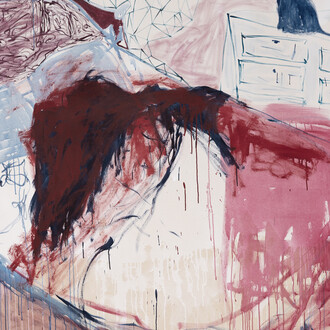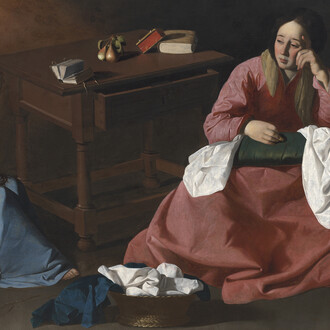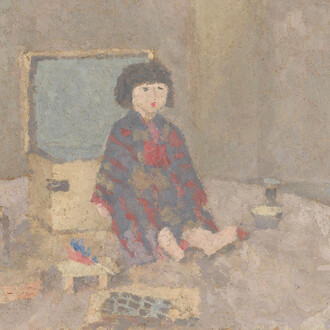In the immediate wake of far-right populists entering German parliament for the first time in 60 years, artist Manou Marzban, dubbed the "Bansky of Persia" by Le Monde, is getting ready to release his latest installation, Diversity Not Fascism.
In this new body of work, Manou transforms a collection of Third Reich WWII helmets with a bright and fluid mix of genres and colours in a declaration against Fascism's subjugation of diversity.
Even for an artist who keeps his finger on the socio-political pulse of Europe, the timing is bone-chilling.
Beyond the collection's uncannily-timed release, Divesity Not Fascism is also a refreshing take on Political Art and the current trend for re-purposing decommissioned army surplus.
In an artistic statement in favor of freedom and individuality, the artist un-tethers the work from a strictly political perspective. The overall mood is one of levity that at the same time does not distract from the political statement.
Rather than the more commonly used bullet or hand-grenade, Manou chose the helmet, it's rounded form more gentle on the eye. He covers the raw surfaces in a bright primary palette, in some cases interweaving playful elements of Pop, Street, and Graffiti art, finely finishing each helmet in a gloss resin that allows for a gentle play of light. You can call it Pop Art, Political Art, a combination of the two, or neither. The choice is ours to make.
The artist is very matter-of-fact when it comes to his view of diversity and inviduality, simply stating, "We need to recognise that the world has moved on. Diversity is inevitable" -- a spot-on statement seeing as the backlash following the announcement of Andrea Merkel's humanitarian refugee policy was the trigger that helped the AfD enter German parliament.
Like Banksy, Manou has a keen eye for the absurd and is able to present it in a way that is equally delightful and provocative. The combination works to draw people together in lively conversation and creates an atmosphere befitting of the artist's personality. In an interview with PBS, (America's Broadcasting Service), the commentator introduced Manou as a character so large, so generous, and so vibrant that people find themselves happy in his company. His enthusiasm is contagious.'
The atmosphere at his home and studio in the south of France is not dissimilar. Working from an exclusive hillside location in Cannes, (the very road leading to his home made famous by Picasso's Villa La Californie), the artist's studio is a double garage situated at the back of a sprawling property he shares with his wife and two teenage sons. In the middle of the studio is an immaculate vintage corvette. The walls floor, and shelving are filled to the brim with art. Through the doors one takes in an idyllic aerial view of the Bay of Cannes.
Local glitterati, friends and collectors regularly flock to his studio in the hopes of grabbing a sneak preview of his latest collection and happily linger to enjoy the ensuing conversations that naturally flow from there. The studio doors are always swung wide in a welcoming gesture. The atmosphere is congenial. The work, like the artist, has a magnetic energy that encourages wide-reaching and lively banter, with topics ranging from football to pressing socio-political issues of the day.
Like his art, however, there is something a little absurd about a high-caliber social scene taking place in a garage filled with oddly animated caricatures, random scribblings and anti-fascist statements. This is an artist, after all, with a finely tuned radar for the socio-political state of Europe. Unnerving undertones pointing to social unrest in Europe are everywhere, and yet the banter carries on, the glitterati continue to breeze through, the band plays on.
In talking to Manou about the key events of his childhood that shaped his unique worldview, one cannot help but sense an eerie parallel between his early years and the scene he finds himself in today. Born in Switzerland in 1962 to an Iranian diplomat, he and his brother were exposed to the extravagance of diplomatic life, with the family home playing host to the most iconic personalities of the day in what seemed like one continuous lavish party.
And yet even as a young boy, he could sense an unnerving tension just below the surface. The reality was that Iran was in turmoil and poised for revolution. When tensions were at their highest, Manou would entertain his younger brother in his bedroom by doodling caricatures of the larger-than-life personalities that breezed through the family home. As the threat of turmoil became more and more imminent, the portraits began to take on comical attributes that made them look absurdly displaced in the lavish surroundings. All the while, outside the bedroom doors, the parties continued. The band played on.
The unique worldview that formulated at this time gave the artist a strong nose for sensing when things just don't add up. His eye on the world is a highly focused lens, able to deconstruct the iconic symbols of our time, extract the poignant issues, and filter them through a unique paradigm that zeros-in on absurd and incongruous realties.
Of this the artist simply says, "I like absurdity. We're surrounded by it everywhere in life."
Beyond the political timing of Diversity Not Fascism, the London launch of this poignant collection follows on the heals of a stunning auction season that saw Iranian modern art peak at Sotheby's, Christies, and Bonham's. Today more than ever, emerging artists from Iran are on every collector's radar.
The most exciting time for the artist's career came in 2013. After several years exhibiting in major cities across Europe, the artist came to the attention of art dealer Nicolas Flamel. He was invited to exhibit at the dealer's Paris gallery, an establishment widely recognized for introducing the region's most exciting emerging talent to a wider audience. Showcasing his work alongside some of Iran's most prominent artists and emerging talent, Manou's collection sold out to great acclaim and the press followed.
From all angles, a solo-exhibition by one of Iran's most exciting emerging talents could not have come at a better time.
















